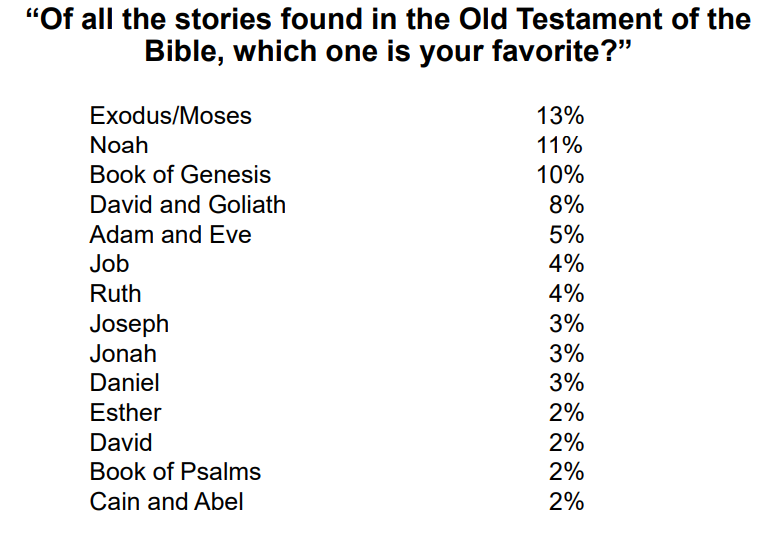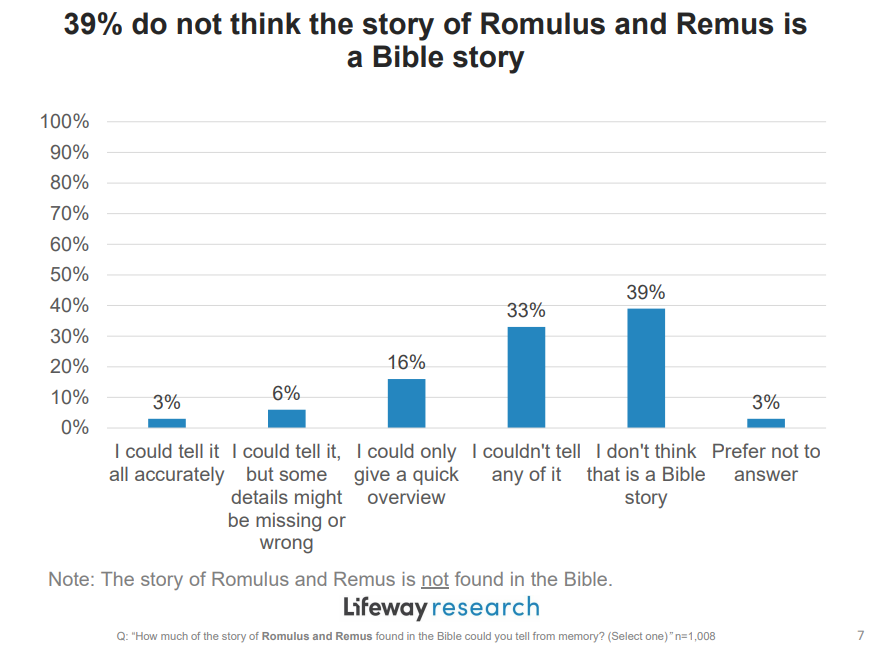Lifeway Research has released a report testing Protestant Christians’ knowledge of basic Bible stories, and the results are appalling.
Titled Protestant Churchgoer Views On Bible Stories, the survey of 1008 American protestant churchgoers who identify as having very strong evangelical beliefs seeks to gain an understanding of their attitudes towards Old testament bible stories.
Along with results like 13% of respondents picking the Exodus/ Moses story as their favorite OT book, 11% for Noah, and 8% for David and Goliath, the survey also revealed a woeful lack of knowledge, with 11% of respondents giving a New Testament story or book, such as the book of Revelation, or the story of Jesus feeding the 5000.

When asked, “How much of the story of Romulus and Remus found in the Bible, could you tell from memory? (In Roman mythology, twin brothers raised by a wolf that founded Rome) only 39% of people said they didn’t think it was a bible story.

regarding another question, when asked, “How much of the story of Daniel and the lion’s den found in the Bible, could you tell from memory?” Only 63% of folks said they could recount it, even if “some details might be missing or wrong” with 9% not knowing anything about it and 1% saying they don’t even think the story is in the Bible.
h/t Christian Post






















7 responses to “New Survey Says 61% of Christians Think The Story of Romulus and Remus is in the Bible?”
I did a survey. Only 0.01% of those surveyed think Protestia has any clue about what Christians think.
That’s a lie.
We all know Protestia’s readership numbers aren’t even 0.01%.
Suggestion for corrected headline: “39% of surveyed Christians directly contradicted an assertion that the story of Romulus and Remus is somewhere in the Bible”. This number is most assuredly far different from the number who would claim that the legend is in the Bible.
I’ve been analysing articles at Protestia, and now understand the nature and agenda of this publication, which is generally unfavorable to the various Christian religions.
Anyone who thinks Jesus was a Jew or the Jews are God’s chose people aren’t Christians at all.
Daniel, not knowing the Scriptures, you do err.
You should move away from your burning cross. It is catching your hood on fire.
You should move away from your burning cross. It is catching your hood on fire.